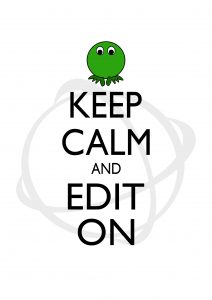Translation Agency Tips: #37: Tips for an editing/amending assignments

You’ve just delivered a translation to a client and you’re about to make yourself a cup of tea before you start working on a new project. Sounds like a good start. Don’t forget that your client may need your help again – editing is part of the job too.
There are many reasons why you may be asked to revise your translation, the most unfortunate case is when the client has spotted some mistakes in the text and they’re asking you to correct them. This is certainly the situation you want to avoid as much as possible.
Another reason why you should amend your translation is because this has been revised internally by the client and they may have a preference for a particular style, which you weren’t aware of at the time.
First of all, it is important to distinguish between Editing and Proofreading. Although both terms seem to have the same meaning, there is quite a big difference between them.
Proofreading
Proofreading is a process whereby the text is being checked against the original document to ensure that grammar, syntax or spelling errors are corrected. This process concentrates on the form and the correctness of the text rather than the terminology and the use of a dictionary is required only to check spelling and conjugation.
Editing
Editing is a different process where terminology is the main focus and it involves research and the use of specialised dictionaries. Most translators and editors work with Cat tools and these can be very useful for editing assignments, as they make it easier to replace wrong terms often used throughout the text. However, ‘Find & Replace’ tools will also come handy in the case of short or less complex texts.
When working in Word, the ‘track changes’ tool is usually used, and sometimes comments can be added through the commenting tool, to make it clearer to the original translator, especially if working in different formats, such as Pdf or Excel files. In either case, the editor only recommends changes and does not implement them.
To find out more about how we can help you with your editing and translations – have a chat with us using the little ‘live chat’ box down there in the corner. Otherwise, contact us and we’ll get back to you as soon as we can.














